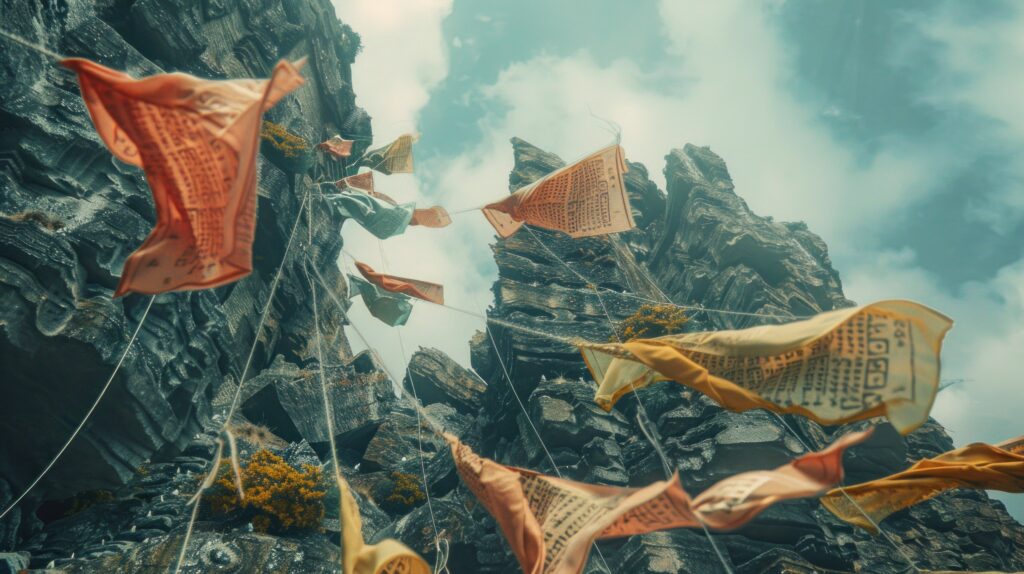When the world comes crashing down,
all the streamers and bright-colored balls,
the artificial, airy structures
constructed with blithe and perfect faith
burst and plummet.
Hold the tattered shreds and empty husks,
holy as first light and final star.
You cannot build again.
No retracing, no rewinding,
no perfect ending
waiting in the highest branches.
Only the threads of raucous crows —
prophets adamant and shrill.
Rags draped over your outstretched arms,
palms up, you have only this to proffer —
a benediction of ruin,
held luminous as a feather,
now resting,
now spinning away,
the softest breath of life.

